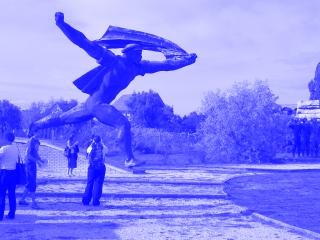Topic
Institutionalized Memory and its Limits
The »German Resettlers from Bucovina« became a »Buchenland German Community« only after the end of the Second World War. The project examines the meaningful and identity-forming practices of the »Landsmannschaft der Buchenlanddeutschen« and, drawing on a large scale Oral History project, explores the limitations of community formation

Institutionalized Memory and its Limits. The Landsmannschaft and the Life Stories of the »Buchenland Germans«In autumn 1949, almost four years after the end of the Second World War, the »Landsmannschaft der Buchenlanddeutschen« was founded in Munich. Similar to other associations, it arose as a result of »flight and expulsion« when the approximately twelve million »German expellees« increasingly organized themselves into political interest groups. Among them, the »Germans from Bukovina« played a special role. They had already left their »old homeland«, which today belongs to Romania and the Ukraine, in 1940 as part of the National Socialist »Heim-ins-Reich« campaign. In addition, counting only around 100,000 people, they were a relatively small group and (still) without a »Bukovina-German« group consciousness: The »resettlers« only became »Buchenland Germans« through the efforts of »ethnopolitical entrepreneurs« (Rogers Brubaker) after 1945.
The dissertation project traces these communization processes and examines how the collective of the »Buchenland Germans« was established through narratives, media, and practices. An extensive Oral History project realized between 2018 and 2021 forms the empirical core of the study. It sheds light on the boundaries of community building among the »German expellees«: For the first time, those who did not participate in the politicized practices of community formation come to the fore.

